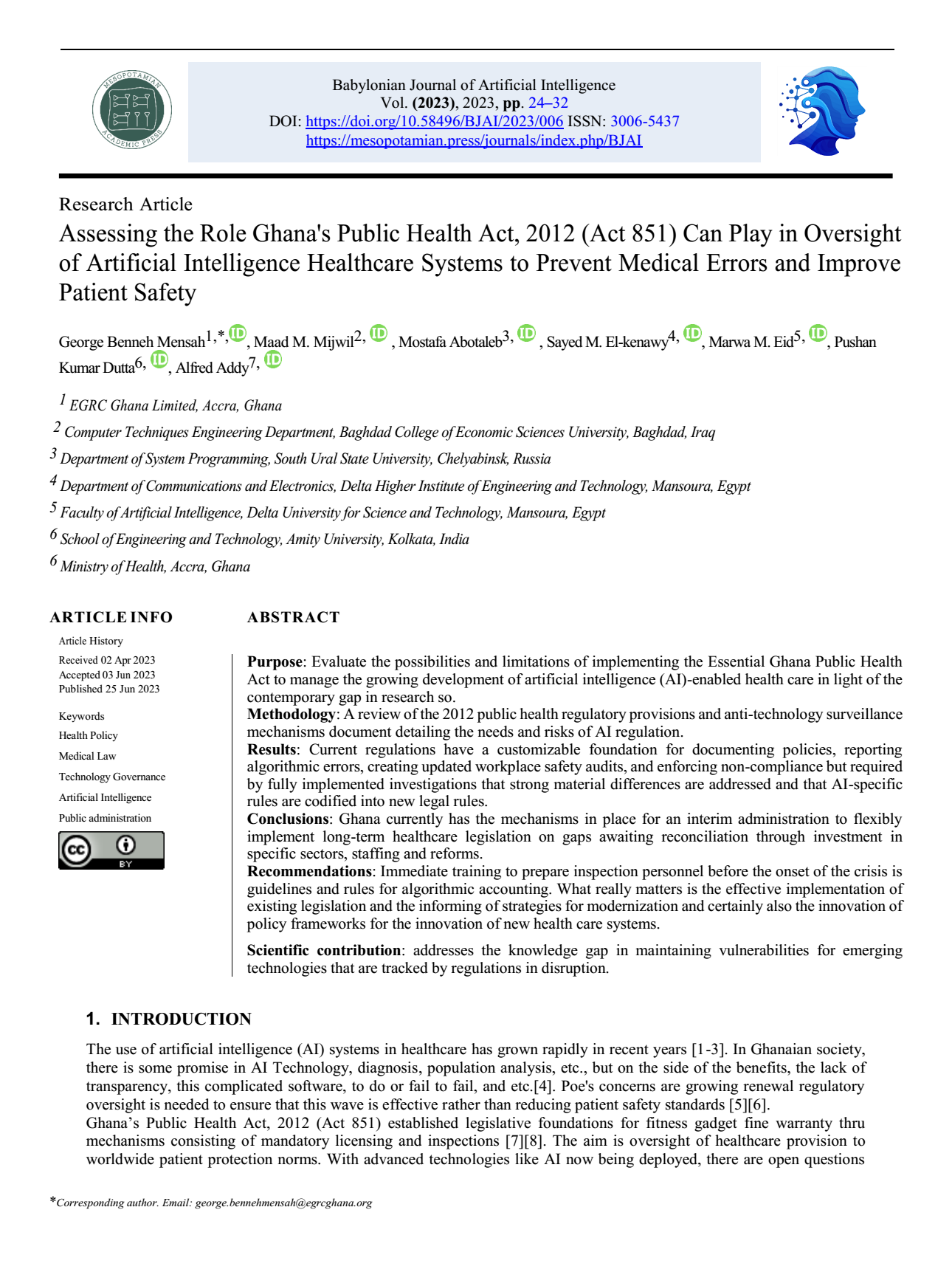Assessing the Role Ghana's Public Health Act, 2012 (Act 851) Can Play in Oversight of Artificial Intelligence Healthcare Systems to Prevent Medical Errors and Improve Patient Safety
Main Article Content
Abstract
Purpose: Evaluate the possibilities and limitations of implementing the Essential Ghana Public Health Act to manage the growing development of artificial intelligence (AI)-enabled health care in light of the contemporary gap in research so.
Methodology: A review of the 2012 public health regulatory provisions and anti-technology surveillance mechanisms document detailing the needs and risks of AI regulation.
Results: Current regulations have a customizable foundation for documenting policies, reporting algorithmic errors, creating updated workplace safety audits, and enforcing non-compliance but required by fully implemented investigations that strong material differences are addressed and that AI-specific rules are codified into new legal rules.
Conclusions: Ghana currently has the mechanisms in place for an interim administration to flexibly implement long-term healthcare legislation on gaps awaiting reconciliation through investment in specific sectors, staffing and reforms.
Recommendations: Immediate training to prepare inspection personnel before the onset of the crisis is guidelines and rules for algorithmic accounting. What really matters is the effective implementation of existing legislation and the informing of strategies for modernization and certainly also the innovation of policy frameworks for the innovation of new health care systems.
Scientific contribution: addresses the knowledge gap in maintaining vulnerabilities for emerging technologies that are tracked by regulations in disruption.
